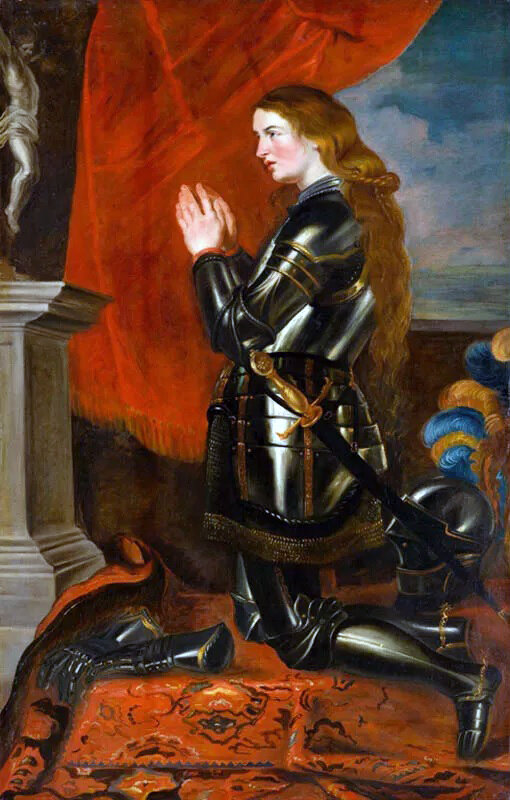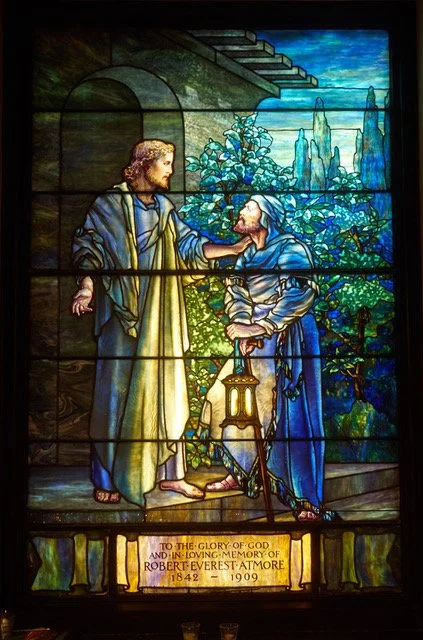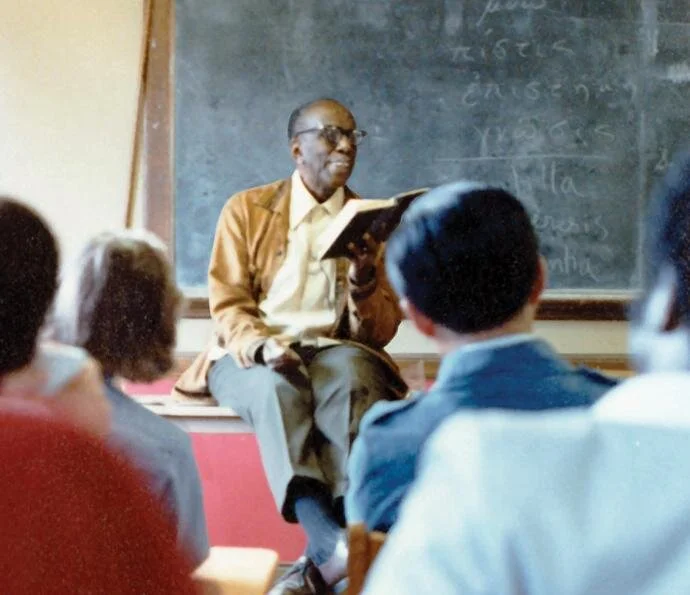Friday Reflection Part I: On Jeanne d’Arc – The Power of Imagination
View Jeanne d’Arc’s biography from A Great Cloud of Witnesses
In her Part II, Suzanne Glover Lindsay illuminates how over the centuries since her death in 1431, Jeanne d'Arc has inspired all kinds of people with different beliefs and agendas, so much so that she became a special guardian of justice, liberty and truth.
I. I was raised and schooled in an American Catholic culture, an enriching traditional environment in which the Cathedral, modeled on Western Europe, France and Spain especially, was the center of everything. I went to the Cathedral School which was built right next to the Cathedral itself and was taught by the Cathedral priests and Ursuline nuns who both knew and respected the Catholic tradition in which, very often, the Saints—never sinners—held center stage. It was in this environment, church and school, that I was introduced to the Catholic saints who the tradition considered noteworthy, and among them was Jeanne d’Arc (c.1412-1431), the “Maid of Orleans,” and the second patron saint of France. Jeanne d’Arc had a special place in our religious instruction: She was someone to admire, to be awed by, to emulate, and most importantly, to be thought about and imagined. And imagine her I did, with fascination and wonder. Who was this person and what was her story?
II. There were two other parts to my early encounters with Jeanne d’Arc. In my family, My mother was a serious Francophile having lived in France for a period and, as I grew up and became more aware, I realized that she was a serious French Catholic, so I learned about many French traditions, among them the story of Jeanne d’Arc as a heroine of France. And because I attended choir school as part of the Cathedral School curriculum and the Director of the Choir School was French Canadian, the “French way” exposed me to various aspects of French liturgical life and to the importance of certain French saints who deserved our veneration. And with these encounters, there were even more things to think about and more room for imagining Jeanne d’Arc.
III. I am now many decades beyond those first encounters with Saint Jeanne d’Arc and while I am still not certain I’ve figured out how she was who she was, the mysterious thing is that I have never doubted that Joan did what she did and that she was called by God to do it – that is, to save France, to inspire the French people and to be in God’s service. Believability has never been in question. But there was so much more to imagine.
IV. Jeanne d’Arc is alleged to have said, “How would God speak to me, if not through my imagination”? Jeanne believed that God did speak to her and she kept listening. She was said to be just 13 years of age when she began to have visions in which God spoke to her. We must acknowledge that we don’t really know what God said to Jeanne, but all the facts of Jeanne’s very short public life—six years at the most—strongly suggest not only that she listened to God speaking to her but that she was able to speak for God when she convinced Charles VII and his advisors that she could lift the siege at Orleans and lead the French into battle. And not only did she end the siege at Orleans but for months afterward she led the French army in a number of successful initiatives against the Burgundians and the English, having convinced the authorities-political, ecclesiastical and military-, that she was a military strategist who knew how to win. Who ever heard of such a thing? How could an illiterate 15-16 year old accomplish all these things and with such courage, skill, and determination. What must Jeanne have been imagining as she went into battle? And did she actually take up arms and engage in combat?
V. Jeanne d’Arc was said to have been possessed by the devil who made her do what she did, and that she practiced witchcraft. But it’s worth noting that those who believed she was possessed were on the Burgundian and English side. Charles VII, the French authorities, and the French prelates and clerics, came to believe—or at least openly professed—that Jeanne was called by God to save France; that is what Jeanne herself told them in clear and convincing language. Again, remember that Jeanne was illiterate and yet she turned out to be very skilled in rhetoric and argument and eventually her keen intelligence became apparent. As the battles wore on, the French people and the French “establishment” came to believe that Jeanne was inspired by God. And, we can imagine that God and Jeanne continued to talk and listen to one another.
VI. In May,1430, Jeanne was captured by the Burgundians who transferred custody to the English for a substantial fee. She was imprisoned at Rouen while she awaited trial for heresy, witchcraft and cross-dressing. The trial was completely political, even though Jeanne believed that she was on trial for what she professed and what she did as a servant of God, as she said in her testimony. For her, the issues were religious, at the heart of which was how God speaks and for what purposes. From the very beginning the pro-English French prelates and Burgundian clerics controlled the tribunal, the goal of which was to see that Jeanne d’Arc was found guilty because they believed her presence and influence were such that she could change the balance of religious and political power and impede continued English domination. There was no “due process.” The English controlled everything and, in fact financed the trial. Jeanne was denied a legal advisor and was not permitted any French ecclesiastical representatives. There were countless other violations of ecclesiastical law, portions of the trial transcript were altered, and the court record was revised by the judges. The trial was a sham from beginning to end and a cauldron of corruption; it was cruel, unlawful and unjust.
VII. We have written in this space recently about the idea of sainthood and what it means to be a saint and, in certain instances, what it would mean to die for one’s faith, i.e, to be a martyr. Because of what she believed about God, what God asked her to do, and what she did, Jeanne d’Arc gave her life in martyrdom. Looking back as we can do and imagining as we have done, we see that she never really had a chance to be exonerated. This fact is made all the more significant when we consider that there was a “posthumous trial” 25 years after the original trial (1431), the findings from which declared Jeanne innocent and a true martyr. 450 years later, Jeanne d’Arc was canonized as a saint of the Roman Catholic Church.
VIII. 60 ago, I never knew any of these particulars of her story, nor could I have imagined them. My memory tells me that what I learned was that Jeanne d’Arc was the heroine of France, that she saved the country and that she died in battle. But now, through this writing, I am trying to come to terms with the great tragedy of Jeanne d’Arc and her martyrdom: that she was convicted and executed, having been burned at the stake, by the French Catholic Church because she was so different and, in her difference, so threatening. For Jeanne, France and the French church were one and the same and it was these two institutions which, together, took her life. Does this surprise me today? Not really. My painful realization is that the Catholic culture in which I was raised and schooled kept her true life and faith from me. But what I know now is that Jeanne d’Arc she was an authentic heroine of Faith. Imagine that.
Amen
—Father Peter Kountz
On Friday Reflections:
Every Friday, Father Peter and Suzanne Glover Lindsay share written reflections highlighting a particular theme. This week’s Friday Reflection revolves around Jeanne d’Arc. In her Part II, Suzanne Glover Lindsay illuminates how over the centuries since her death in 1431, Jeanne d'Arc has inspired all kinds of people with different beliefs and agendas, so much so that she became a special guardian of justice, liberty and truth.










